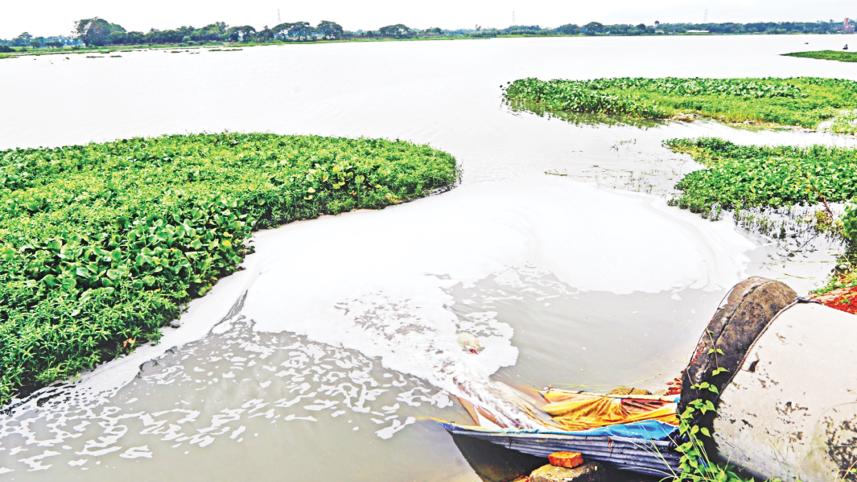Savar Tannery Complex: Environment ministry taking steps as per parliamentary committee's recommendation

The Environment, Forest and Climate Change Ministry has started taking steps to shut down Savar Tannery Complex, in line with the parliamentary standing committee's recommendation.
The parliamentary standing committee on the Ministry of Environment, Forest and Climate Change, at a meeting on August 23, recommended shutting down the Savar Tannery Industrial Estate in Hemayetpur since the estate does not have adequate facilities to treat all liquid waste generated by the tanners it houses.
The ministry, in a press release on September 11, said the chairman of Bangladesh Small and Cottage Industries Corporation (BSCIC) was requested to send a clear explanation by September 20 as to why the Savar Tannery Complex will not be shut down as per the recommendation of the parliamentary standing committee.
The request was made in a letter signed by the Director-General of the Department of Environment, Ashraf Uddin, on September 9, 2021.
In the August 23 meeting, the parliamentary watchdog said the Tannery Industrial Estate can treat around 25,000 cubic metres of liquid waste every day, but the tanners generate around 40,000 cubic metres of liquid waste per day. Therefore, 15,000 cubic metres of waste is dumped into the Dhaleshwari river without any treatment, causing severe pollution.
Based on a report placed by the DoE before the Jatiya Sangsad committee, the standing committee said the Tannery Industrial Estate does not have the facility to treat solid waste, including heavy metals and chromium.
This solid waste is being dumped into the river without any treatment, causing pollution and severe harm to the environment.
Due to this, DoE did not renew the estate's environmental clearance licenses for the last two years.
In 2003, the government had taken the initiative to build the Bangladesh Small and Cottage Industry Corporation (BSCIC) Tannery Industrial Estate on 200 acres of land in Hemayetpur after moving all tanneries from the capital's Hazaribagh to prevent environmental pollution and to protect Buriganga.
In the future, if the complex can operate following the provisions of the law, reopening may be considered, the JS body also added.
There are around 130 tanneries at present in the leather industrial park.
Tanneries, and other horizontal industries related to leather goods, were accommodated in the new industrial park after relocating it from Hazaribagh in 2003.



 For all latest news, follow The Daily Star's Google News channel.
For all latest news, follow The Daily Star's Google News channel.
Comments